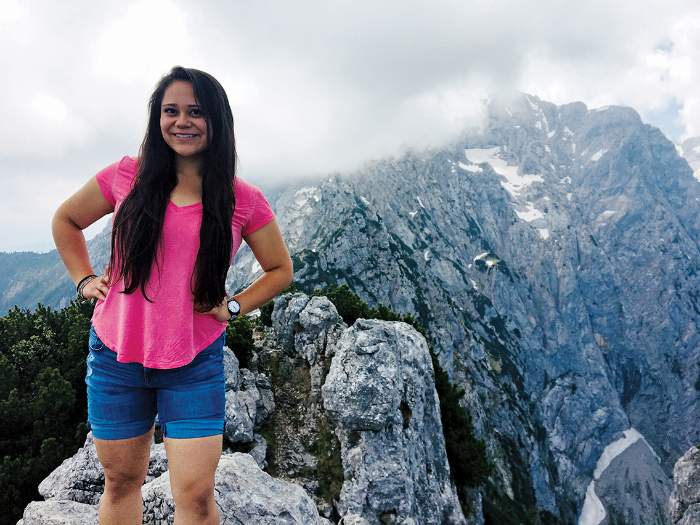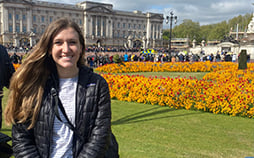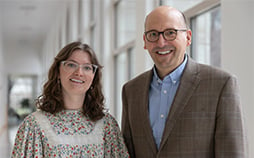Attempt Great Things for God
Kennedy Daniel wasn’t sure how she could afford her European study abroad.
February 2019
 Latin American Studies major Virginia Gutierrez went to Austria as a study-abroad student thanks to a donor-funded scholarship from the BYU Kennedy Center.
Latin American Studies major Virginia Gutierrez went to Austria as a study-abroad student thanks to a donor-funded scholarship from the BYU Kennedy Center.
Latin American Studies major Virginia Gutierrez wanted to learn German. She is interested in biotech and many pertinent scientific journal articles are written in German with a lag for English translation.
Gutierrez began studying German but found it much more difficult to learn than the three languages she already knew: English, Spanish, and Portuguese.
“German’s really hard,” she says. “The structure of a sentence is harder, and so is the vocabulary.”
So when her professor announced a study abroad in Vienna, Austria, Gutierrez leapt at the opportunity.
At BYU, study-abroad experiences are coordinated by the David M. Kennedy Center for International Studies. Cory Leonard, assistant director of the center, says, “When students return from studying abroad, many of them report confidence boosts, increases in understanding about academic and professional decisions, and global perspectives of their field and the Church. In addition, some gain new connections, go on to other internships, or even publish papers.”
More than 2,000 students participated in studies abroad in the 2017–18 academic year. The average cost of a BYU study abroad is $12,000 for a semester-long experience or $7,600 for a spring or summer term. That’s only half of what students from other universities pay, but it’s still a significant and sometimes prohibitive amount of money.
Gutierrez knew she didn’t have the funds to pay for the Vienna trip and had almost given up on the idea when her professor said, “Don’t let money stop you.”
She learned about donor-funded Global Opportunity Scholarships, which make up the difference between a student’s savings and the cost of a study abroad. Gutierrez applied for a scholarship and got it. “I was only able to go because of that scholarship,” she says.
Leonard says that as with Gutierrez, the aid makes the difference for many students between going abroad and staying in Provo.
In Europe Gutierrez saw the statues of Vienna, visited bakeries in Bratislava, marveled at the mountains above Salzburg, and discovered a love of European chocolate in Budapest. And she spoke German every chance she got—even when young Germans insisted on practicing their English with her.
Although she’s not fluent enough to read scientific journals yet, Gutierrez is on her way, having improved her German enough to make small talk or order food at a restaurant. “It seemed like studying abroad would really help,” she says, “and it did.”“When students return from studying abroad, many of them report confidence boosts, increases in understanding about academic and professional decisions, and global perspectives of their field and the Church.”—CORY LEONARD

Kennedy Daniel wasn’t sure how she could afford her European study abroad.

Ten years have passed since the American Family Survey began collecting data about Americans’ opinions about families—their importance, their health, their needs—and therefore what policies will be most beneficial and popular across party lines.

Eight students’ experiences in the BYU College of Family, Home, and Social Sciences are highlighted.